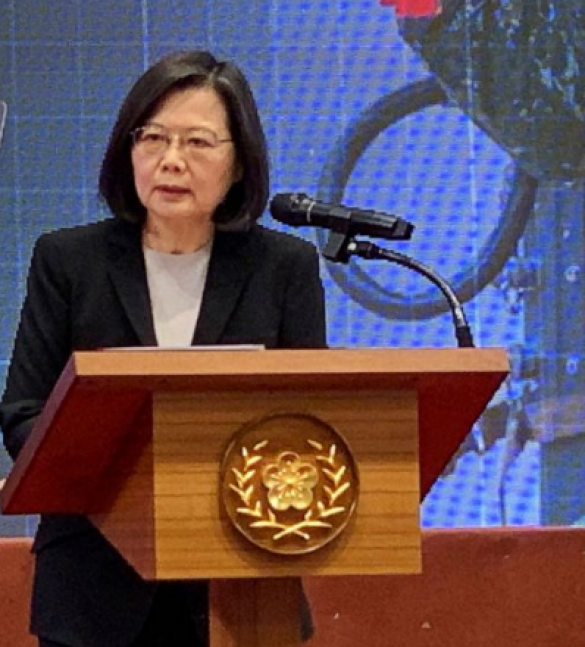
Taipei: President Tsai Ing-wen announced on Tuesday that Taiwan will increase its mandatory military service from four months to a year beginning in 2024 as a result of pressure from China's military, diplomatic, and trade activities.
China asserts sovereignty over Taiwan, which broke away from the mainland in 1949 as a result of civil war. Since Beijing cut off communication with Taiwan's government following the 2016 election of Tsai, who is viewed as pro-independence, the country's long-standing threat of invasion by China has grown more acute.
Particularly the People's Liberation Army of China has intensified its military intimidation, sending fighter planes and navy ships toward Taiwan almost every day in recent years. The island's military responds by actively following those movements, which frequently doubles as training for its own soldiers.
Also Read: Iranian found dead in French River suicide investigation launched
Men born after 2005 are subject to the extended military service, which will begin on January 1, 2024. Those who were born before 2005 will still be required to serve four months, but under a new training regimen designed to improve the island's reserve forces.
Everyone opposes war, "said Tsai. "This is true for Taiwan's administration, citizens, and the entire world, but peace does not fall from the sky, and Taiwan is leading the way in the spread of authoritarianism.
The announcement regarding conscription reform was well received by the White House, which noted that it reaffirmed Taiwan's commitment to self-defense and increased deterrence.
According to our obligations under the Taiwan Relations Act and our one-China policy, we will continue to help Taiwan maintain a sufficient capacity for self-defense, the White House said, adding that we continue to oppose any unilateral changes to the status quo by either China or Taiwan.
Also Read: Gretchen Whitmer's kidnapping plot co-leader is sentenced to 16 years in prison
Beijing has frequently used military drills to counter actions it sees as undermining its sovereignty claims.
When Nancy Pelosi, the speaker of the U.S. House, visited Taiwan in August, China responded by holding its biggest military drills in decades because it regarded Pelosi's trip as an official diplomatic exchange. Despite being the island's biggest unofficial ally, Washington does not formally recognise Taiwan as a sovereign state, so diplomatic relations between the two governments are not technically possible.
Taiwan's defence capabilities will increase as a result of the plan, but it remains to be seen how well the Defense Ministry will implement the reforms, according to Arthur Zhin-Sheng Wang of Taiwan's Central Police University.
The public widely criticised Taiwan's current 4-month military conscription requirement as being too brief and lacking the training that professional soldiers actually need. As it was converting the army into an entirely volunteer corps in 2017, the government reduced the time from a year to four months.
90% of Taiwan's 188,000 military personnel are volunteers, and 10% of the men are serving the mandatory four months of service.
According to the outlined plan, the new system would place those completing a year of military service in a more defensive role of "homeland defence," with frontline combat roles being reserved for those who choose to opt in. According to Wang, the homeland defence function would resemble that of the US National Guard.
According to a survey conducted by the Taiwanese Public Opinion Foundation in December, 73.2% of Taiwanese adults said they would support mandatory military service for one year. According to the survey, this support cut across party lines and included both the Democratic Progressive Party and the Nationalist Party, which is more pro-China.
But support has decreased among those who are most likely to join the military. Only 35.6% of those 20 to 24 years old, the youngest age group, said they would support an extension. The same question was posed to the group by the Foundation in March, and 56.4 percent of participants agreed that it should be extended.
Also Read: The Supreme Court continues to enforce immigration restrictions
The implementation period in 2024, when Taiwan will elect a new president, according to Paul Huang, a research fellow at the Taiwanese Public Opinion Foundation, signifies that Tsai is "passing the buck" to her successor. He said, "This is one of the fundamental steps that ought to have been carried out a long time ago."